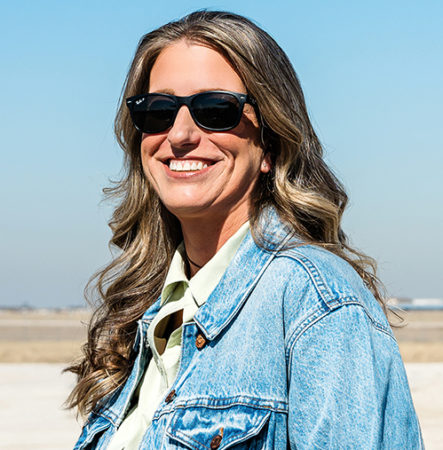By Ilona A. Munzer,
President & CEO, Alder Airfield Services
As I travel around to different aviation conferences across the country, the conversation around AI continues to evolve. I overhear many folks finding themselves caught between two extremes: those who want to automate everything and those who understand that some decisions simply can’t be left to machines.
There’s no doubt technology has transformed aviation. Automation has made flying more efficient, data-driven, and, in many cases, safer. But machines don’t know how to keep people safe unless they are being operated by human beings, which brings me to the topic du jour: AI.
At Alder Airfield Services, we see the value in automating systems, but not at the cost of human safety. Here’s why.
Why humans should make the calls
Humans bring situational awareness to the table.
We interpret changing conditions, detect subtle signals like a shift in body language or tone of voice, and we act. We use experience, judgment, and sometimes gut instinct. These are critical skills for a flagger, barricader, resident project representative, and others who are on the ground every day.
All day long, we make calls in the gray areas where a machine could easily lock up and stop working, or worse, follow a preset series of tasks not designed for the situation at hand. When issues escalate, AI will never have the emotional intelligence to act like a human when its needed most. Who wants to depend on a computer algorithm (no matter how impressive) for all of that?
Where machines shine
I’m not anti-technology. Machines are great at what they’re built to do, which is to monitor systems without succumbing to human fatigue and execute repeatable tasks without emotional bias. In this way, tech is invaluable because it helps us spot anomalies, run diagnostics, and improve efficiency. We use AI across Alder for exactly those reasons, as well as to help communicate when culture or language is a barrier.
But when something unpredictable happens, tech definitely can’t replace the value of a mentally safe, emotionally engaged professional making judgment calls in real time.
The aviation industry’s challenge
Some roles, like those in and around the AOA, require humans. Full stop. There is no substitute for people who are mentally present, supported by good leadership, and grounded in a culture that prioritizes both technical skill and psychological well-being.
After all, yes, maybe a machine can make a decision fast, but can it make the right decision in an ambiguous environment where lives are literally on the line? My bet’s on humans every time.
At Alder Airfield Services, we’ll continue investing in technology because it most certainly has a role in AOA safety management. But our true investment is in our people and building psychologically safe teams, the most solid foundation there is for building safely and efficiently.

 Ilona A. Munzer is the President and CEO of Alder Airfield Services. A safety expert in airport construction, an advocate for labor equity, and a champion for workplace mental health, she is a leading voice for building mental health-empowered teams.
Ilona A. Munzer is the President and CEO of Alder Airfield Services. A safety expert in airport construction, an advocate for labor equity, and a champion for workplace mental health, she is a leading voice for building mental health-empowered teams.